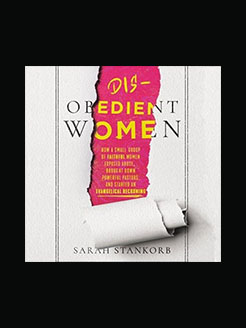Published in 2007
281 pages
Caitrin Lynch, Ph.D., is Professor of Anthropology at Olin College of Engineering where she teaches courses in anthropology, design, engineering, and entrepreneurship. She is the secretary of the American Ethnological Society (of the American Anthropological Association) and past treasurer of the American Institute of Sri Lankan Studies.
She is the author of two books: Retirement on the Line: Age, Work, and Value in An American Factory, and Juki Girls, Good Girls: Gender and Cultural Politics in Sri Lanka’s Global Garment Industry. She is also producer of the documentary film, “My Name is Julius.” Dr. Lynch received her Ph.D. and M.A. in cultural anthropology from the University of Chicago and her B.A. in anthropology from Bates College.
Dr. Lynch’s research and teaching passions include examining the dynamics of work and cultural values (with a focus on aging and gender) as well as the cultural dimensions of offshore manufacturing, plus a commitment to understanding social behavior in global contexts and a devotion to encouraging students to use qualitative methods to think critically about the world around them. She especially strives to expose engineering students to critical analysis and identification of the needs and opportunities in our aging world. One outlet for these efforts is in her interdisciplinary service-learning course “Engineering For Humanity.” She is currently working on a book project focusing on a 150-year-old New England textile factory, in which she examines questions of outsourcing, precarious labor, gender, and business competition.
What is this book about?
When a government program brought garment factories to rural Sri Lanka, women workers found themselves caught between the pressures of a globalizing economy and societal expectations that villages are sanctuaries of tradition. These women learned quickly to resist the characterization of “Juki girls”–female garment workers already established in the urban sector–as vulgar and deracinated, instead asserting that they were “good girls” who could embody the nation’s highest ideals of femininity. Caitrin Lynch shows how contemporary Sri Lankan women navigate a complex web of political, cultural, and socioeconomic forces. Drawing on extensive ethnographic research conducted inside export-oriented garment factories and a close examination of national policies intended to ease the way for globalization, Lynch details precisely how gender, nationalism, and globalization influence everyday life in Sri Lanka. This book includes autobiographical essays by garment workers about their efforts to attain the benefits of being seen as “good” while simultaneously expanding the definition of what sort of behavior constitutes appropriate conduct. These village garment workers struggled to reconcile the role thrust upon them as symbols of national progress with the negative public perception of factory workers. Lynch provides the context needed to appreciate the paradoxes that globalization creates while painting a sympathetic portrait of the individuals whose life stories appear in this book.







